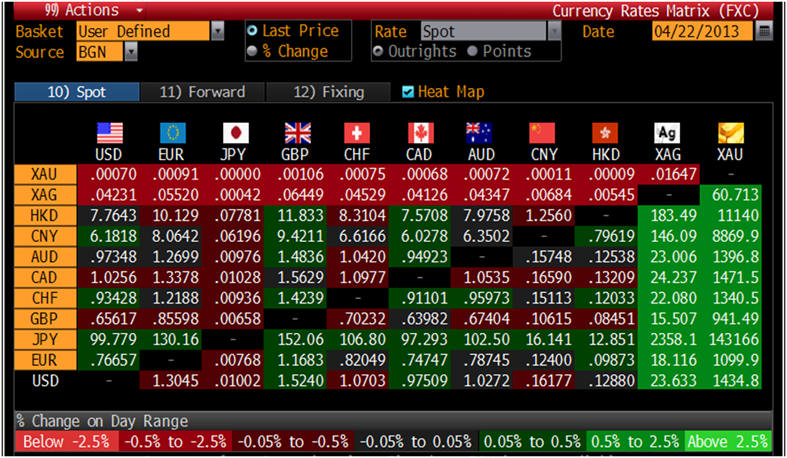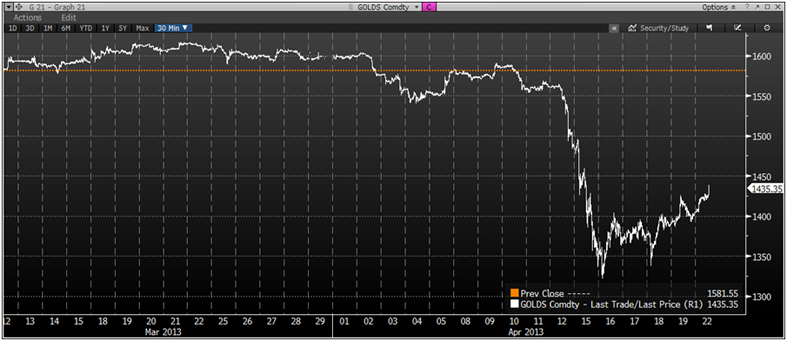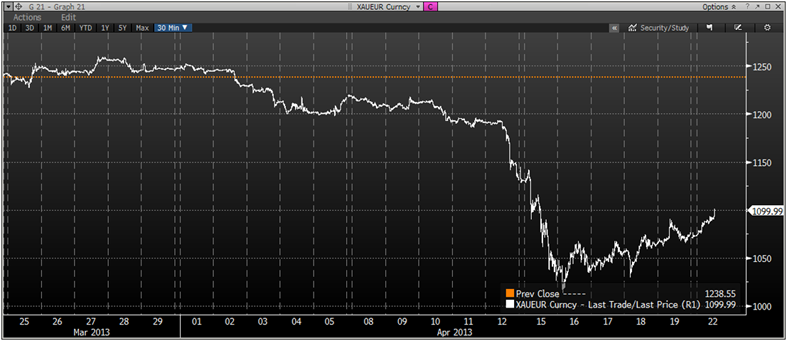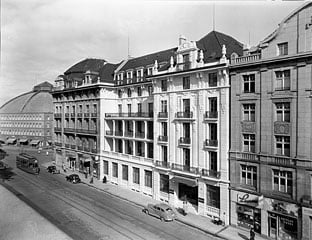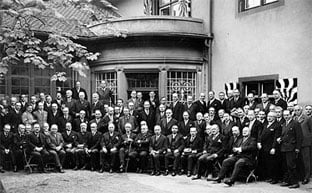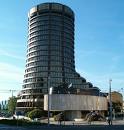 The leaders of the member nations of the Trans-Pacific Partnership (TPP) pose for a group photo, November, 2010. (Photo: Gobierno de Chile; Edited: JR / TO)Think
the world needs an alternative to corporate media? Click here to make a
tax-deductible donation to Truthout and keep independent journalism
strong.
Our country's democratic values could be under threat if President Obama fast tracks the Trans-Pacific Partnership.
The leaders of the member nations of the Trans-Pacific Partnership (TPP) pose for a group photo, November, 2010. (Photo: Gobierno de Chile; Edited: JR / TO)Think
the world needs an alternative to corporate media? Click here to make a
tax-deductible donation to Truthout and keep independent journalism
strong.
Our country's democratic values could be under threat if President Obama fast tracks the Trans-Pacific Partnership.
On critical issues, the massive Trans-Pacific Partnership (TPP) being negotiated in secret by the Obama administration will
undermine democracy
in the United States and around the world and further empower
transnational corporations. It will circumvent protections for health
care, wages, labor rights, consumers' rights and the environment, and
decrease regulation of big finance and risky investment practices.
The only way this treaty, which will be very unpopular with the
American people once they are aware of it, can be approved is if the
Obama administration avoids the democratic process by using an authority
known as "Fast Track," which limits the constitutional checks and
balances of Congress.
If the TPP is approved, the sovereignty of the United States and
other member nations will be dissipated by trade tribunals that favor
corporate power and force national laws to be subservient to corporate
interests.
Circumventing the Checks and Balances of US Democracy
President
Nixon first developed the idea of "Fast Track"
in 1973 as a way to secure Congressional approval of trade agreements,
and it has been a key to passing many unpopular agreements such as the
World Trade Organization (WTO) and NAFTA. As people have caught on to
the offshoring of jobs and other detrimental consequences of these
agreements, civil society now understands how important it is to not
allow a president to circumvent the democratic role of Congress. Fast
Track expired in 2007, so President Obama must have it re-instated in
order to pass the TPP. His administration is moving to have Fast Track
approved and hopes it will happen by this summer.
Under Fast Track, the president was allowed to negotiate and sign
trade agreements with whatever countries the executive branch selected -
all before Congress voted on the agreement. Fast Track meant that the
Congressional committee processes were circumvented and the executive
branch was empowered to write lengthy implementing legislation for each
trade pact without Congress. These executive-only authored bills
required US law to conform to the trade agreement. For example,
Glass-Steagall
had to be repealed under President Clinton to conform to the WTO. And,
Fast Track empowered the president to submit the executive-branch
written bill for a mandatory vote within a set number of days, with all
amendments forbidden, normal Senate rules waived, and debate limited in
both chambers of Congress. Fast Track clearly undermined democracy.
Indeed, Fast Track turned the US Constitution on its head. Under
Article I Section 8, Congress has exclusive authority "to regulate
commerce with foreign nations" and to "lay and collect taxes [and]
duties." Under the Constitution, the president is empowered to negotiate
treaties, but Congress must vote to approve them. Thus, Fast Track took
constitutional power from Congress and prevented the checks and
balances needed to prevent an imperial presidency.
For most of the history of the United States, treaties and trade
agreements went through the normal congressional process described in
the Constitution. Fast Track is a relatively new concept that coincides
with an era of increasing presidential power, which includes the power
to declare war and to murder US citizens without warning or judicial
oversight. If Congress had reviewed agreements such as the WTO and NAFTA
beforehand and civil society had been able to participate in a
democratic process, would the United States have made the mistake of
passing these laws that have so injured our economy and others?
Fast Track is very unpopular, so now President Obama and others who
advocate for it do not use the term. Instead they call it by the
euphemism "Trade Promotion Authority." But changing the name does not
change what it is - a method of ceding the constitutional power of
Congress and undermining the checks and balances built into the
constitutional framework.
Congress needs to consider what agreements such as the TPP will do to
jobs, trade balances and the environment. Since Nixon, Fast Track has
been used by presidents to go way beyond trade and tariffs. These
agreements have been used to change US law
by establishing "rules related to domestic environmental, health,
safety and essential-service regulations, including deregulation of
financial services; establishment of immigration policies; creation of
limits on local development and land-use policy; extension of domestic
patent terms; establishment of new rights and greater protections for
foreign investors operating within the United States that extend beyond
US law; and even limitation of how domestic procurement dollars may be
spent." Thus, not only has the constitutional power of Congress to
regulate commerce with foreign nations been undermined, but a whole host
of domestic laws have been rewritten to satisfy international trade.
The TPP Undermines US Law, Prevents Progressive Policy Around the World
The TPP is much broader than the usual trade agreement and will
impact many aspects of society from the Internet to health care to
regulation of risky bank speculation. For this reason alone, it is
especially important to have a transparent, public debate on the
agreement. The TPP contains 26 chapters, but only five of them concern
traditional trade issues. The TPP has been negotiated in secret except
for over
600 corporate representatives who have been advising the US trade representative on its language. In Washington, DC
K Street lobby firms have been getting involved
in the process, including pushing for Fast Track. Many of those
corporations that have failed to get what they want from Congress are
now getting their way through the secret back door of the TPP.
Though the TPP negotiations are being conducted in secrecy, portions
of the text have been leaked. Here is what is known about some of the
key issues that the TPP will affect:
Prevent Buy America Manufacturing Preferences: The TPP's procurement chapter
ends 'Buy America' preferences
by requiring that all firms operating in any signatory country are
provided equal access to US government procurement contracts over a
certain dollar threshold, the same access that domestic firms have. To
implement this, the United States would agree to waive "Buy America"
procurement policies.
Undermine Environmental Laws and Regulations:
Similarly, governments who are seeking to encourage localization and
green manufacturing through procurement preferences will be stopped. A
recent example involved Ontario, Canada, which has employed a renewable
energy program that requires energy generators to source solar cells and
wind turbines from local businesses so as to cultivate a robust supply
of green goods, services and jobs. The program has earned acclaim for
its early success in generating 4,600 megawatts of renewable energy and
20,000 green jobs. But, the WTO ruled that this violated WTO rules. In
another case
, a US company Lone Pine Resources is suing the Canadian government
under NAFTA for more than $250 million due to lost profits from
Quebec's moratorium on fracking, which prevents Lone Pine from fracking
under the St. Lawrence River. This is
not an isolated incident:
. . . corporations such as Chevron, Exxon Mobil, Dow Chemical, and
Cargill have launched 450 investor-state cases against 89 governments,
including the United States. Over $700 million has been paid to
corporations under US free trade agreements and bilateral investment
treaties, about 70 percent of which are from challenges to natural
resource and environment policies. Corporations have launched attacks on
a range of public interest and environmental regulations, including
bans or phase-outs of toxic chemicals, timber regulations, permitting
rules for mines, green jobs and renewable energy programs, and more.
Undermine Internet Freedom: The
Electronic Freedom Foundation (EFF) argues that the intellectual property chapter (see the
February 2011 draft US TPP IP Rights Chapter [PDF])
would have extensive negative ramifications for users' freedom of
speech, right to privacy and due process, and hinder peoples' abilities
to innovate. Its provision on copyrights will adversely affect the
creator's ability to create content, the ability of technology companies
to make innovative products, and the ability of users to use content in
new ways. EFF summarizes the attack on Internet freedom by the TPP,
writing:
In short, countries would have to abandon any efforts to learn from
the mistakes of the US and its experience with the DMCA over the last 12
years, and adopt many of the most controversial aspects of US copyright
law in their entirety. At the same time, the US IP chapter does not
export the limitations and exceptions in the US copyright regime like
fair use, which have enabled freedom of expression and technological
innovation to flourish in the US. It includes only a placeholder for
exceptions and limitations. This raises serious concerns about other
countries' sovereignty and the ability of national governments to set
laws and policies to meet their domestic priorities.
Destroy Food and Agriculture: Agriculture trade rules
have both undermined US producers' ability to earn a fair price for
their crops at home and in the global marketplace. Multinational
grain-trading and food-processing firms have made enormous profits,
while farmers on both ends have been hurt. The results are that hunger
is projected to increase, along with illicit drug cultivation, and
undocumented migration.
Dairy farmers fear the TPP could decimate the US dairy industry
and have urged Congress to refuse to Fast Track it. Failure to
establish new agriculture terms would intensify the race to the bottom
in commodity prices, pitting farmer against farmer and nation against
nation to see who can produce food the cheapest, regardless of labor,
environment or food-safety standards. Regarding food safety, current
trade agreements contain language requiring the United States to accept
imported food that does not meet our domestic safety standards and
limiting inspection of imported foods and products. The TPP is expected
to continue these practices.
Prevent Health, Safety, Environment, Consumer and Labor Laws: According to leaked documents, the TPP contains provisions
with special rights for corporations. The provisions protect investors
by providing them with compensation for loss of "expected future
profits" from health, labor, environmental and other laws. The negative
effect is that nations will not pass laws that threaten corporate
profits in order to avoid lawsuits and heavy fines. Court cases in which
corporations are suing governments over laws and regulations that cause
loss of expected profit will be tried before a trade tribunal of three
judges. These judges can include corporate lawyers on temporary leave
from their corporate job while they serve as judges.
Global Trade Watch reports
that under previous trade agreements "Over $3 billion has been paid to
foreign investors under US trade and investment pacts, while over $14
billion in claims are pending under such deals, primarily targeting
environmental, energy, and public health policies." The right to sue
governments will create a hurdle for governments considering actions to
protect workers, consumers, health and the environment.
Privatize Health Care and Make it Unaffordable: Leaked documents show
that the US Trade Representative is pressuring TPP member countries to
expand pharmaceutical monopoly protections, which essentially trade away
access to medicines. In a recent letter,
Doctors Without Borders wrote
that the TPP will be "the most harmful trade deal ever for access to
medicines in developing countries." The TPP does this damage by
inflating pharmaceutical prices through lengthy patent protections, as
Doctors Without Borders writes:
One proposed TPP provision would require governments to grant new
20-year patents for modifications of existing medicines, such as a new
forms, uses or methods, even without improvement of therapeutic efficacy
for patients. Another provision would make it more expensive and
cumbersome to challenge undeserved or invalid patents; and yet another
would add additional years to a patent term to compensate for
administrative processes. Taken together, these and other provisions
will add up to more years of high-priced medicines at the expense of
people needing treatment waiting longer for access to affordable
generics.
There is also concern that the TPP will force public health systems
to open up their medication programs to pharmaceutical corporations
giving them greater access and greater control over the price of
medications, effectively destroying the ability of the public health
system to negotiate for a low price. The same may occur with public
health systems in the US such as
Medicare, Medicaid, Tricare and the Veterans Health Administration, making medications more expensive and potentially out of reach for their patient populations.
In addition, countries that provide health care through a national
public health program, rather than a market-based system dominated by
for-profit insurance, are threatened by provisions that oppose
state-owned enterprises. Corporations view state provision of services
as unfair competition and therefore a violation of free trade. This will
make it more difficult for the United States to adopt a single-payer
health system, and it will make it more difficult for countries with
such systems to protect them from privatization and health insurance
domination.
Prevent Public Banks and Banking Regulation: These same provisions about state-owned enterprises will affect
public banking
too. North Dakota is the only state in the US to have a public state
bank, although over a dozen states and cities are considering them.
Public banks are used to hold taxes that are collected, administer
payroll for public employees and provide loans for public projects. The
advantage is that all public dollars are managed in a public institution
rather than having to pay fees and interest to a private bank. But the
TPP would consider public banks to have unfair advantages and therefore
violate free trade.
And trade agreements protect big finance by (1) preventing regulation
of the finance industry by locking in a model of extreme financial
service deregulation; and (2) allowing capital to move in and out of
countries without restrictions. This prevents countries from controlling
the flow of capital, which has many negative consequences. Over 100
economists wrote trade representatives urging them to ensure that the
TPP, unlike other trade agreements, will allow governments to control
and regulate capital without the threat of investor lawsuits, writing:
Authoritative research published by the National Bureau of Economic
Research, the International Monetary Fund, and other institutions has
found that limits on short-term capital flows can stem the development
of dangerous asset bubbles and currency appreciations, grant nations
more autonomy in monetary policy-making, and protect nations from the
dangers of abrupt capital flight.
See 102 Economists Issue Statement on Capital Controls and TPP
Thus, the TPP and other corporate trade agreements will undermine the
ability of governments to regulate health, safety, labor, environment
and finance. The 600 corporate advisers to the TPP see this as an
opportunity to do an end-run around laws and policies that they have
been unable to put into effect through the normal democratic process.
This is why the TPP is being called a
global corporate coup that makes corporations more powerful than governments.
Corporate Trade Agreements Hurt the US Economy
The evidence is stark that so-called 'free' trade agreements, really corporate trade agreements, are bad for the US economy.
Newly-released government trade data
for 2012 show job-eroding US trade deficits have ballooned in countries
with which the US has a corporate trade agreement and have declined in
the rest of the world. The numbers are stark. In countries where the US
has a trade agreement, the trade deficit has grown by more than 440
percent, while in countries where there is no agreement, the deficit has
declined by 7 percent. In fact,
the aggregate US trade deficit
with trade-agreement partners is more than five times higher than it
was before the deals went into effect, while the aggregate deficit with
non-trade-agreement countries has actually fallen slightly.
And, this means a tremendous loss of jobs. Using the Obama administration's net exports-to-jobs
ratio, the FTA trade deficit surge means the loss of nearly one million American jobs.
We should have learned this lesson from NAFTA because what we are
seeing with corporate trade agreements since NAFTA is more of the same.
Under NAFTA, the US deficit with Canada ballooned and the small US
surplus with Mexico turned into a $100 billion-plus deficit.
As a result of NAFTA, the United States lost 692,000 jobs according to the Economic Policy Institute.
But, instead of
learning from NAFTA,
President Obama pushed a trade agreement with South Korea, promising it
would result in economic benefits for the United States. One year has
now passed since the Korean trade agreement was put into effect and the
US ended up with the same result as it experienced with NAFTA.
Eyes on Trade reports:
US goods exports to Korea have dropped
9 percent (a $3.2 billion decrease) since the Korea FTA took effect, in
comparison to the same months in the year before FTA implementation. US
imports from Korea have climbed 2 percent (an $800 million increase).
The US trade deficit with Korea has swelled 30 percent (a $4 billion
increase). The January data from the US International Trade Commission
show that the US trade deficit with Korea skyrocketed 81 percent above
December's level, topping $2.4 billion – the largest monthly US trade
deficit with Korea on record. The ballooning trade deficit indicates the
loss of tens of thousands of US jobs."
Exports are not as robust as advocates of trade agreements would like
to believe. Between 2002 and 2012, US exports to trade-agreement
partner countries grew annually at a rate of only 4.8 percent, while
exports to non-trade-agreement countries grew at 6.6 percent per year on
average. This has only
worsened with the passage of the Central America Free Trade Agreement
(CAFTA) in 2005, which nearly doubled the number of trade-agreement
countries. Since then, average US export growth to non-trade-agreement
countries has topped average export growth to trade-agreement partners
by 46 percent.
Advocates for corporate trade agreements
manipulate statistics in order to make a false claim of economic benefit
from the agreements. They create obvious falsehoods by not counting
many major trade agreements put in place before 2003. This would exclude
big agreements like NAFTA, count "re-exports" - goods made elsewhere
that are shipped through the United States en route to a final
destination, omit imports in their calculations so people do not see the
trade imbalance, and not correct for inflation in order to exaggerate
exports.
Sadly, rather than being honest about the failure of corporate trade,
the Obama administration works overtime to mislead the public. The
recently released
2012 annual trade report leaves out critical details from the very beginning.
Eyes on Trade analyzes the Obama report:
Take the first sentence: 'Trade is helping to drive the success of
President Obama's strategy to grow the US economy and support jobs for
more Americans.' Almost makes you forget that last year's non-oil trade deficit rose to a five-year high,
implying the loss of millions of jobs, doesn't it? How about the
second sentence: 'The Obama Administration's trade policy helps US
exporters gain access to billions of customers beyond our borders to
support economic growth in the United States and in markets worldwide.'
That's an interesting way to frame a year whose sluggish two percent
export growth rate put us 18 years behind schedule in achieving Obama's export-doubling goal."
Time for a Democratic Revolt Against the TPP
A unique feature of the TPP is that it contains a "docking
agreement." This means that other countries can sign onto the agreement
after it has been negotiated as long as they are willing to accept the
previously negotiated terms. The US started the negotiations with allies
such as Australia and New Zealand and a number of small countries such
as Vietnam, Brunei, Malaysia, Chile and Peru. Larger countries are able
to force smaller, more desperate countries to accept terms that are
detrimental to them. As more countries sign on, the TPP could become an
agreement that defines global trade.
The TPP has gone through 16 rounds of negotiations in almost total
secrecy. Some portions of the text have been leaked, but most remain
secret. Throughout the process more than 600 corporate advisers have
been working with the US Trade Representative in shaping the proposals
and specific language of the text. Civil society has only been
marginally involved, not provided drafts and ushered into
stakeholder meetings where they can ask questions but only receive vague answers.
Despite this effort at secrecy, civil society groups have been
getting organized to oppose the TPP, stop Fast Track and prevent the
global corporate coup. More than 400 organizations, including our own organization,
It's Our Economy,
representing a diverse range of issues including labor, environment,
public health, famers, Internet freedom, banking regulation, human
rights, faith, Native American and much more, have signed on to a
letter to Congress emphasizing
how the TPP negotiations have been "inconsistent with democratic
principles," opposing Fast Track and outlining expectations of how key
issues should be addressed in 21st century trade agreements.
Citizens Trade Campaign summarizes writing:
"The letter includes eight broad categories that the TPP, a
Trans-Atlantic Free Trade Agreement and any other US trade pact must
address in order to improve quality of life for Americans and people
throughout the world: (1) prioritization of human and labor rights; (2)
respect for local development goals and the procurement policies that
deliver on them; (3) no elevation of corporations to equal terms with
governments; (4) protection of food sovereignty; (5) maintaining access
to affordable medication; (6) safeguards against currency manipulation;
(7) space for robust financial regulations and public services; and (8)
improved consumer and environmental standards."
On February 27, the AFL-CIO released an
executive council statement
questioning the TPP saying "The United States cannot afford another
trade agreement that hollows out our industrial base and adds to our
substantial trade deficit." The executive council of the AFL-CIO went on
to say, "We do not need another trade deal that simply boosts corporate
profits by encouraging offshoring good jobs while undermining wages,
benefits and worker rights. We must do better." Americans have clearly
learned the lessons of previous trade agreements - they only work for
the transnational corporations and oligarchs around the world, they
undermine workers, and spur lower wages and environmental destruction.
Arthur Stamoulis of Citizens Trade Campaign summarizes the antidemocratic actions of the Obama
administration with regard to the TPP saying, "This is a rollback in
transparency, and an extremely undemocratic way to craft policy that is
likely to influence jobs, health care costs, financial regulations,
consumer safety, the environment and more for decades to come. The only
way to prevent the public from being saddled with a bad agreement is for
Congress to exert its authority."
The
TPP is the battleground for defining democracy in the 21
st
century and setting up the rules for international commerce in the era
of transnational corporate power. No matter what issues you are
concerned about, if the TPP becomes law, it will undermine national
sovereignty and hopes for progressive policies that put the people's
needs before corporate profits. The time is now to get active, work to
oppose the antidemocratic Fast Track approach in Congress and say "no"
to the democracy-undermining Trans-Pacific Partnership. This is a trade
agreement that will be opposed by most Americans and a battle on which
the people can prevail, but only if they know it exists.
For more information and to get involved, visit:
The Citizens Trade Campaign
Public Citizen's Global Trade Watch
Eyes on Trade
Flush The TPP
You can listen to our interview with Arthur Stamoulis of Citizens Trade Campaign and Ben Beachy of Eyes on Trade on the TransPacific Partnership versus Democracy on Clearing the FOG.


















![Live 24 hours gold chart [Kitco Inc.]](http://www.kitco.com/images/live/gold.gif)
![Live New York Gold Chart [Kitco Inc.]](http://www.kitco.com/images/live/nygold.gif)


